Podcast: Download (Duration: 1:07:13 — 54.6MB)
Subscribe: Spotify | TuneIn | RSS | More
Today marks the 10th anniversary of The Creative Penn Podcast. The first episode went live on 15 March 2009 and there are now 422 episodes with over 3.2 million downloads across 215 countries. In today's show, I reflect on the development of the podcast and my own creative journey.
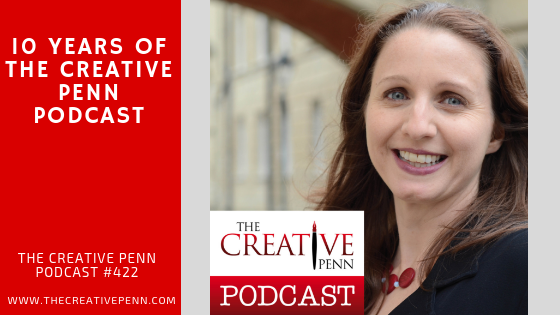
But like writing a book, or self-publishing, you can learn as you go, adding to your process over time and outsourcing as you start making income.
Also like writing a book, many people will start the journey but very few will continue for the long-term.
I recorded the first episode in the spare room of my house in Ipswich, Queensland, Australia. I phoned my interviewee, Rachael Bermingham, on a landline, put it on speakerphone and held my MP3 recorder next to the phone to record it. Rachel was the co-author of 5 Ingredients, one of the first breakout self-published books in Australia. She was all over the news so she was basically famous and I didn’t have a clue what I was doing but I did it anyway.
I’m so glad I took that first step because my podcast is one of the best things I’ve created in my life. It is an important part of my creative body of work.
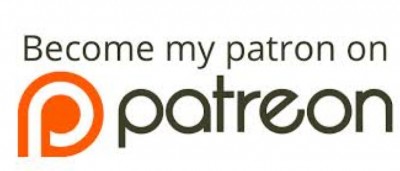
What have I discovered in 10 years of The Creative Penn podcast?
In this article, I’ll take you through a journey of the development of the show and share tips along the way, and then talk about my next 10-year slow pivot. The tips are relevant for anyone who wants a long-term creative business, not just specifically if you want to podcast because the principles are essentially the same. I hope you find some interesting ideas for your own author business!
March 2009 – First episode. I started by doing everything myself!
I started podcasting in 2009 as a way to build my author platform. I was still in my job as a business consultant and I wanted professional speaking work as well as a way to sell my non-fiction books and courses. I was determined to build multiple streams of income so that I could leave my job and become a full-time author-entrepreneur. I knew I needed more than books to make a decent income (and I still believe that’s true for most authors).
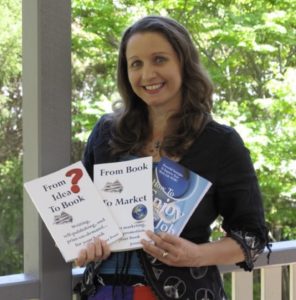
I self-published my first book, How to Enjoy Your Job, in 2008 (later rewritten as Career Change) but I had only sold around 100 copies even though I’d made it onto national TV and radio, so I decided to put all my energy into online marketing which looked to have better results.
My mentor, Yaro Starak, had a podcast and it was one of the main ways I learned about entrepreneurship. Yaro has been on the show several times, most recently in episode 406 to talk about long-term success and he continues to be a great model of sustainable online business and living a happy life. [Check out his Blog Profits Blueprint here.]
I listened to a lot of audio from bloggers in the US at the time and realised that it was a fantastic way to reach people with a message and I also bought products from people I listened to, so I knew it worked as a marketing funnel. There were very few authors producing podcasts (and it’s still rare) so I thought it might be a way to differentiate myself and build an audience over time.
I wanted to learn and share my journey, as well as help other people. I also wanted to connect with other authors.
I was deeply lonely in my little town west of Brisbane, Australia. It was a cultural wilderness and I wanted to meet other creative entrepreneurs. Interviewing them seemed like a good way to connect, especially as many of them lived in the USA.
TIP: Only start a podcast if you are doing it for more than the money. It has to be intrinsically rewarding first before you ever make a dollar from it.
Podcasting takes time to grow.
For about six months, it was like howling into the wind. No traffic, no listeners, no nothing. This was back when self-publishing was still a dirty word, but as the Kindle took off, things began to change, at least in the USA and the podcast began to gain traction. I started to get listeners and I started to connect with people. I even made some (online) friends!
Technically, I did everything myself.
Learning by doing is one of the most important principles for the independent creative entrepreneur. Stop talking about it and get on with it 🙂
I still think this is important. In fact, I have a note pinned by my desk based on Steven Pressfield’s books, Turning Pro and Do The Work.
[clickToTweet tweet=”“When we turn pro, everything becomes simple. Do the work.” @spressfield via @thecreativepenn” quote=”“When we turn pro, everything becomes simple. Quit the monkey mind. Do the work.””]
Sept 2011 – I left my job to be a full-time author-entrepreneur
I was able to leave my job because I made an income at that point from multiple streams of income. I’ve been through this in my books, How to Make a Living with your Writing, and Business for Authors, in more detail, but basically, I was bringing in money from book sales, speaking, consulting, course sales, and affiliate income. Marketing my business and services was all based on content marketing, so people found me through the blog and the podcast.
TIP: Podcasting is a form of indirect marketing.
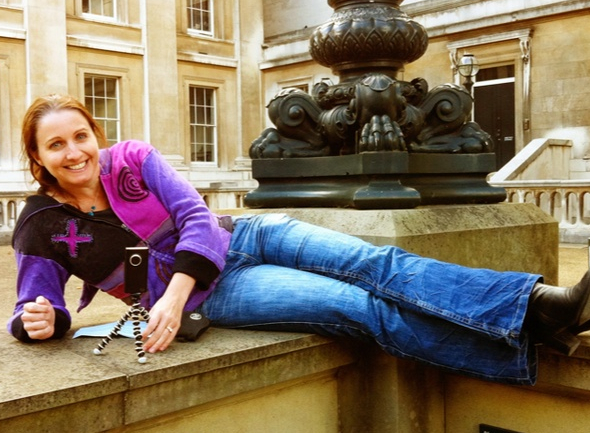
You can give calls to action with specific links which you can also include in your show notes, but podcasting is really more of a brand-building exercise over time.
People can’t click on a link as they might do with ads or a blog post because they are listening at the gym or driving or while they’re doing other things, but they might go looking for you later if they connect with your message.
I can’t point to a specific percentage of my income that has come from the podcast, but over the years I’d say that it’s responsible for the lion’s share of my creative business because it has led to so many opportunities and has enabled me to reach an audience directly — without advertising.
This is another reason I’m so passionate about content marketing, especially at a time when authors are obsessed with paid ads. I’ve never paid to advertise my website or podcast. It’s grown organically over time through search engine traffic, social media shares and word of mouth.
It’s creative, sustainable, long-term marketing which suits my personality much better than focusing on paid ads.
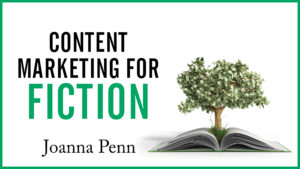
Jan 2013 – I started doing an introduction ahead of the interview
After four years of interview-only podcasting, a listener emailed me and suggested that I talk about what I found interesting in an intro before the show.
I didn’t think anyone would be interested, but it turns out that many of you tune in for the intros and not always for the interviews 🙂
So, I’ve expanded it over the years to include more segments — news, futurist things, my personal update and anything useful like webinars, and I’ve realised how powerful it is to be able to communicate so personally. I try to share openly about my creative journey and sometimes it’s these little snippets that seem to connect the most.
[clickToTweet tweet=”‘Voice is powerful for connection. People do business with people they know, like and trust.' w/ @thecreativepenn” quote=”Voice is powerful for connection. People do business with people they know, like and trust.”]
Always make sure you’re connecting with your audience in some way. It’s important that people get to know YOU, not just your guests. This is how you build up a trusted brand over time and foster a real connection with your listeners.
June 2013 – I started doing transcripts for search engine optimization
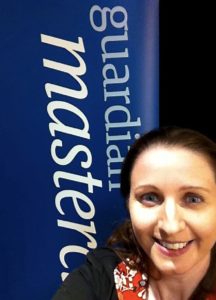
Up until this point, I made detailed show notes myself during the audio editing process but it was more of a round-up, not a transcript.
If you want organic traffic for a podcast, you need transcripts for SEO (search engine optimization) purposes because audio is not (yet) searchable.
This costs around $1 per minute, so a 45 min show is $45. I use www.speechpad.com but there are many other services. You still have to edit and format the transcript for your website, which I did myself initially and then my VA, Alexandra, eventually took over that job. That kind of help might add another $20-$40 per show, depending on how long your interview is. There are also services that will do everything for you, including all the audio tech, but they cost a lot more.
I’m glad to have transcripts for accessibility purposes, and because many people prefer to skim the text rather than listen, but I do it for the traffic. That means transcripts are not for everyone. It’s got to be worth the investment.
TIP: You need to be a business powered by a website to make effective use of transcription.
Words on web pages bring people to your site through search traffic, but what do they do when they get there?
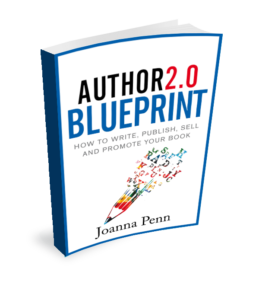
Most podcasts don’t have an associated business model, so they fail to capture the benefit of transcripts and therefore most don’t do them anyway, which also means they don’t get enough traffic to justify paying for them. It’s a chicken and egg situation.
Podcasting is content marketing.
I get organic traffic of over 700,000 uniques per month and many thousands of the words on this site are generated from podcast transcripts. They produce long-tail traffic and may even be more effective in an age of voice-first search because the language is natural and spoken, rather than written.
[More on content marketing in How to Market a Book, and also my Content Marketing for Fiction mini-course.]
Feb 2014 – I decided to give up the podcast
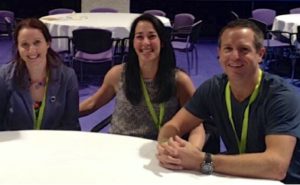
Yes, I really did think I was going to give it up!
By this point, the podcast was taking a LOT of my time. Since I was still doing everything myself, each podcast took around 5 hours each week.
The downloads had begun to creep up which meant more people were listening, but it also meant the show was costing me more money. I use Amazon S3 hosting which is cheap and scalable, but the costs go up as downloads increase and I was paying over $100 per month on hosting, on top of $60 per week on transcription. If you factor in my time, the podcast was getting pretty expensive.
Was it really worth it?
I was still getting the benefits I’d aimed for — connection with other authors, learning new things, brand-building and indirect sales, but at that point, I was not earning a big income from my author business. I had not hit six figures and I wanted to, so something had to give.
It was you guys, my listeners, who convinced me to continue — and who still keep me coming back every week. So many people told me that the podcast was useful that I decided to monetise it. I would double down, instead of giving it up.
 TIP: If something isn’t working, why isn’t it working?
TIP: If something isn’t working, why isn’t it working?
Do you hate the topic, or have you run out of ideas, or does no one care?
OR/ do you have an audience but you just need to figure out how to make it pay?
What is your business model?
[For more on this, see How to Make a Living with your Writing and Business for Authors: How to be an Author Entrepreneur.]
May 2014 – The first corporate sponsor, Kobo Writing Life, joined the show
Thanks to Mark Lefebvre who believed that supporting the podcast was worth it, and to Chrissy Munroe for continuing to support the show even though it is a lot more expensive now as there are so many more downloads every week 🙂
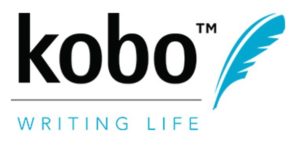
Thanks to all the sponsors: Kobo Writing Life, Draft2Digital, IngramSpark, and PublishDrive.
TIP: If you want a sponsor, foster relationships with companies who want to speak to your specific audience.
Don’t pitch too soon. Wait until you have a decent audience so you can put together download figures.
Only work with companies you can authentically recommend. Your reputation will always be the most important thing for a long-term business.
August 2014 – I started using Patreon

I read The Art of Asking by Amanda Palmer (I’m one of her patrons now!) which is a great book that essentially says that people want to help the creators they love, so just ask. I also had a discussion with Jim Kukral about his book, Go Direct, (episode 191) where we discussed artistic patronage and how creatives have always been supported by people who love their work. So I started asking.
In Sept 2014, I made $15.88 from patrons. In Jan 2016, it ticked over $100 a month, so it was definitely slow growth. Now it’s over $2000 a month, so you guys make the podcast financially viable alongside the corporate sponsors.
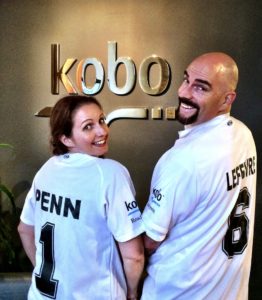
Basically, I will not stop doing The Creative Penn Podcast because I have people who demonstrate practically that it is worthwhile and it is an increasingly important part of my income.
A huge thank you to all of you who sponsor the show on Patreon. There are 644 patrons right now and of course, the number goes up and down every month as people join and leave. It means an incredible amount because you can obviously listen to the show for free, but it’s evidence that you enjoy the show and want it to continue. You also get the extra monthly Q&A audios as well.
If you'd like to sponsor the show, go to: www.Patreon.com/thecreativepenn
TIP: If you want to use Patreon for your podcast or your art, it’s easiest if you have an audience already who you already deliver value to in some way and who want to support you.
Only a small percentage of your audience will join your Patreon. The Creative Penn Podcast gets 12,000 – 15,000 downloads per week, and with 644 patrons, that is less than 5%. That return will differ per niche, but it’s all a factor of numbers, so do you have a big enough audience to justify a Patreon setup?
Patreon is just one part of how the podcast makes income but it is directly measurable, as is the amount that comes from sponsorship. In 2018, my direct podcast income was 10% of my total business revenue, but there’s no way that is the only financial return.
Indirect sales are a huge part of the podcasting business model.
There’s no way of knowing how many of you have bought one of my books or courses, or clicked through one of my affiliate links, or signed up for my email list, or purchased something I’ve recommended because of this show. The frustrating thing is that you cannot ever pin down the financial value of a podcast. That makes it hard on sponsors as well, because it’s more about brand building than direct income but it’s also the pride and satisfaction of creating something new in the world every week that helps people.
August 2014 – Outsourced transcript formatting
My virtual assistant, the wonderful Alexandra Amor, works with me on a lot more than the podcast, but up until this point, I had done everything myself for the show. Plus, I was still writing fiction and non-fiction, as well as speaking, blogging and more.
To free up more time, I passed over the formatting of the transcripts to Alexandra and she created the first draft of the show notes with accompanying images made with www.canva.com .
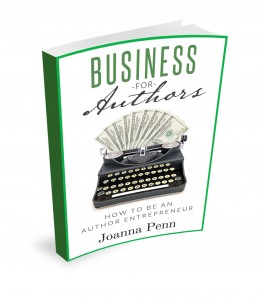
That means hiring help.
Most of us work with professional book cover designers and professional editors, but if you want to take your business to the next level, you might need a virtual assistant, a bookkeeper, perhaps tech help, and even marketing help, if you can justify the outlay. If you’re podcasting, you might need transcription, formatting, or audio editing help.
For tips on outsourcing, check out this interview with Chris Ducker on how to work with personal assistants. I also cover outsourcing as part of my Productivity for Authors mini-course.
TIP: Create a content schedule so you can plan in advance. I didn’t really do this until I started working with Alexandra as my VA. When you outsource, you need to plan, which helps you organise content. We use a shared Google Sheet with months of interviews scheduled in advance.
June 2015 – Moved to a weekly show
Prior to this, the podcast was pretty much every two weeks or ad hoc as I recorded interviews and not necessarily published on the same day.
TIP: In order to make listening a habit, it’s best to release the show on the same day on a regular schedule e.g. weekly.
I only moved to weekly because The Self-Publishing Podcast (now The Story Studio Podcast) was catching me up in terms of number of episodes because they were weekly, and that annoyed me!
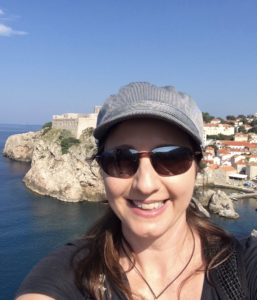
But I discovered going weekly at a regular time dramatically impacted the number of subscribers and downloads. It was definitely a game-changer, but also mid-2015 was when podcasting started to take off so there may have been more listeners around in general.
The same is likely true of our books. I’ve never managed a regular production and release schedule but authors who publish on the same day, or send a newsletter on the same day, seem to have better engagement than those of us who are more ad hoc.
Oct 2015 – Outsourced video editing
My husband Jonathan left his job in Sept 2015 and started working with The Creative Penn. He took over the video editing for the podcast, adding the interviews to YouTube.com/thecreativepenn
Interestingly, the YouTube listenership is a different audience to the audio feed and not one I engage with so much.
I have a lot of shorter videos on YouTube as well, but it’s not my favorite form of creation. I’m more a written word and audio person.
TIP: Only do a video podcast if you love the medium and consume video as part of your daily life.
I’ve been doing YouTube videos for over 10 years now, but I’ve never enjoyed the platform myself and will be phasing this out over time. The same goes for any platform e.g. I don’t use Facebook personally, but I do love Instagram so prefer to use that nowaways.
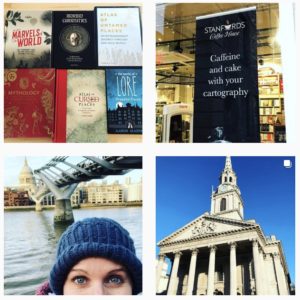
November 2016 – Outsourced audio editing and production
I was still spending time each week with audio production, but finally decided I’d better outsource that as well. I started working with Dan Van Werkhoven to do audio editing and processing for the podcast, which freed up even more of my time.
At this point, my work became the parts only I could do: finding and connecting with interviewees, researching and preparing questions, conducting the interview itself and then finalizing the interview blog post and also recording the introduction every week. This is a truly sustainable way to create for the long-term but there’s no way I could have afforded this at the beginning.
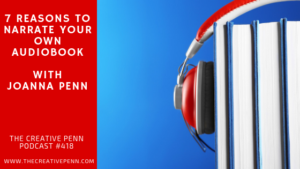
How the podcast works now
Since then, the podcast production has been a slick operation:
- I plan the show 3-5 months in advance and schedule guests into the Content Schedule, a Google Doc shared between the whole team where we track the status
- I interview the guest on video Skype and upload the audio to Speechpad for transcription
- Jonathan edits the video and loads it to YouTube and uploads the edited audio to Dropbox for Dan
- Alexandra receives the transcript and formats it into a blog post with appropriate images and links, saving as a draft in WordPress
- I record the intro and load it into Dropbox
- Dan edits the intro into the interview, formats the file and uploads to Auphonic to add the metadata, then Amazon S3 for the hosting and then adds the MP3 URL into the Blubrry plugin on the blog post
- I edit the final version of the blog post, check the audio and schedule for the Monday morning slot
- The show goes out on a Monday morning UK time and you download it on your device 🙂
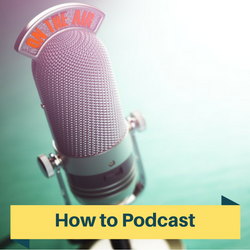
A huge thanks to Dan, Alexandra, and Jonathan for making the podcast production so streamlined and for making it easier for me to continue with the show.
TIP: Start by doing everything yourself and then outsource the parts that you want to as you begin to earn money.
As with publishing, there are companies who will do all this for you, but you will pay for it.
March 2019 – I’m still here!
Podcasts for authors have come and gone over the years, but I’m still here. In the same way that authors come and go in a niche, or give up writing altogether — and I have seen a lot of those in the last 10 years too — podcasts are mostly short-lived.
In fact, I have a rule now that I don’t do interviews with shows that have less than 30 episodes, because most don’t last. Harsh, but true. It’s the same in any creative industry.
TIP: Consistency over time is critical if you want to build a loyal audience, people who know you, like you and trust you enough to do business with you.
You have to love your topic.
You have to have so many ideas that you never tire of creating.
You have to want more than an income because podcasting is only about making money if you design a sustainable business model around it (in a similar way to an author business). You have to find the process intrinsically rewarding or you won’t be able to sustain it for the long-term.
My podcast reaches a larger market and helps more people than my books … and that’s OK 🙂
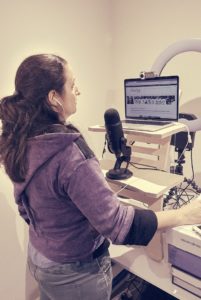
The Creative Penn Podcast has now had over 3.2 million downloads across 215 countries.
I have not sold a million books yet and I have ‘only' sold books in 86 countries, which is still pretty awesome, but nowhere near 215.
In terms of demographics, the US makes up 60% of downloads, with UK, Australia, Canada, Germany and New Zealand coming in next — but there are also downloads from Japan and India, Korea, Brazil, Saudi Arabia, the Russian Federation, Israel and Iran among others. Creatives, we are a glorious United Nations of a show!
I used to want my books to be everything, but in this busy world many people prefer to listen, or read with their ears, than to read with their eyes.
You can sometimes change someone’s life more effectively through a podcast or an audiobook than through the written word and that’s OK. Getting your message or your story into someone’s brain is the point.
Words do not have to be written. They can be spoken.
My podcast is an important part of my creative body of work, just as important as my books, perhaps even more so.
Many of you have told me that you find the show useful, or that some nugget of information or inspiration has helped you or made you money, or just made life easier. As someone who always wanted to be in the self-help industry, a British Tony Robbins, this makes me super happy 🙂
The podcast is also an asset that drives revenue for my business and I love doing it. So The Creative Penn Podcast is not going anywhere. I am committing to at least episode 500, so that’s two more years and then I’ll review again.
But it’s also not enough for me anymore.
 Books and Travel: Announcing my next 10 years of podcasting
Books and Travel: Announcing my next 10 years of podcasting
A lot has changed in the author community since March 2009, when the international Kindle had not yet launched and there was no such thing as KDP Select or Kobo or BookBub or ACX or Vellum or many more of the tools we take for granted now.
I’ve changed too and I’ve pretty much shared it all publicly on this site over the years.
I started writing my first novel in November 2009, I left my job in September 2011, I started making six figures in 2015 which is probably when I finally had the confidence to say that I would make it long-term as an author-entrepreneur.
Which brings me to now, March 2019.
When I think about my next 10 years, 2019 – 2029, I know that a lot more will change, but I also know that I still want to be an author and a podcaster.
These things are part of my creative DNA.
But I’m ready to share more of my J.F.Penn side, which I have talked about over the years but never doubled down on. I want to share the personal stories behind my fiction and also talk to authors about the places that inspire their work.
I want to use content marketing to bring people to my fiction and I have some non-fiction in mind for that brand, too. I want to build something new, a destination site for people like me.
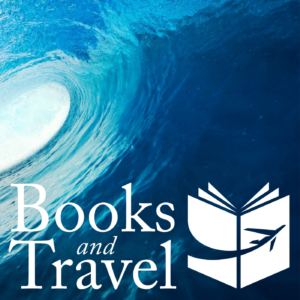
Escape, curiosity, inspiration. Unusual and fascinating places alongside the deeper aspects of travel.
There are four episodes available on the Books and Travel podcast as this goes out and it should be in your usual podcast app. Click here for the episode list and subscribe buttons.
I’ll be doing a mix of solo shows and interviews.
As this goes out, I have solo shows on Lake Malawi, Jerusalem and Bluewater Sailing: The 3 Trips That Shaped my Life, as well as Escape, Reinvention, Curiosity, Challenge: Why Travel?
I’m going to write a travel memoir in public over time and eventually, that will become a book. I’ll also be starting on the shadow book since so much of my darker side emerges when I travel.
It’s a very different side of me and even if you don’t read my fiction, you might find it interesting.

I’ll also be interviewing fiction and non-fiction authors about places they’ve traveled that inspire their writing and also on specific topics like walking, or grief and death travel and basically, anything that interests my J.F.Penn side.
I will NOT be talking about the craft of writing, publishing, book marketing or creative entrepreneurship on Books and Travel 🙂
I have interviews available right now with literary fiction writer Orna Ross on Ireland and historical thriller author David Penny on Granada and Cordoba in Spain. More interviews to come with fiction authors on the places that inspire their stories, as well as non-fiction authors on travel and related topics.
If you listen to the show and think you might be an appropriate interviewee, then please use the Contact form on the site, www.BooksAndTravel.page/contact
Books and Travel will be bi-weekly for now because of time constraints but I’ll see how it goes over time. I’d like to go weekly at some point. There is an email signup for a Monthly Reading List because everyone loves book recommendations!
If you want more behind the scenes information about why I’ve chosen to go this way for content marketing and tech setup details, check out my course on Content Marketing for Fiction as I go into much more detail there.
From the early response from Patreon supporters and my Content Marketing course members, it is much more personal than The Creative Penn Podcast. If that piques your interest, I hope you’ll check it out and I’d really appreciate a review on your favorite podcast app, especially iTunes, as that helps with discovery.
OK, I hope you’ve found this useful and that it gives you some ideas for your own creative business. I’ll be back next week as usual with The Creative Penn Podcast and I hope you’ll also check out Jo Frances Penn on the Books and Travel Podcast!
Please do leave any comments or questions or thoughts below and join the conversation. I'd love to know what you think!
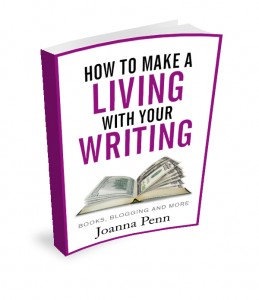
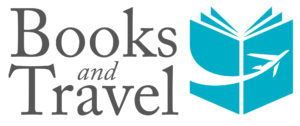



Happy anniversary Joanna! Thank you for your brilliant podcast and inspiration over the years.
Thank you for your podcast. Every author I talk with I recommend your podcast and books. Because I have published wide (from your advice) I chose Draft2Digital. So many authors in my local writer’s group have asked me to explain what going wide means. I recently gave a presentation on my experience going wide with Draft2Digital. I am a retired math teacher so I am numbers and facts oriented. My presentation was to a 4 state conference in the Midwest (Ozark Writer’s League). It was very well received. I recommended your podcast and “How to Market a Book”, along with recently published Draft2Digital book, and Mark Levebvre’s newest “Killing it with Kobo”. I have been asked to give the presentation again to another writers group (Ozark Romance Writers). I have taken your advice about expanding your income source into presentations, seminars, and podcasts. Hope to help with a local writer’s podcast too. I’ve been accepted in libraries through Overdrive also. I love going wide.
I just finished listening to your latest podcast. At the tail end, you said you are talking about going wide on a podcast for the week of April 4, 2019. So excited I can’t wait to listen on Monday, April 6- it’s like being a little kid and having to wait for Santa Claus. One more day!
Thanks Martha 🙂 It’s out today!
Congrats on 10 years, thanks for your teachings along your journey and cheers to another decade of both your podcasts(love the new one)!!! 🙂
Thanks Pranathi 🙂
Congrats on the anniversary!
Congratulations! Joanna, years have passed, I bought an early edition of How to Market your book when I just had my first traditionally published (small publisher though) book coming out in 2014 and, waiting for its release, selfpublished a rejected novel in December 2013. I set up a blog and did things you recommended, getting reviews and putting myself out there — but I also found so many ideas over the years from your amazing guests on the podcast and am a techie, so I love the futuristic stuff lots.
I did buy another book of yours more recently out of interest, but then I bought the class on content marketing: I was interested in the topic (I do teach writing classes online in Germany and now have more then 13 books written and quite a big email list and a small but nice Youtube canal — but also many more sign-ups for writing tips to begin with than for my fiction) ANYWAY, I knew that I knew a lot about content marketing — but was sure to find as always something interesting AND, i did not want to patreon a few dollars, but buy a more expensive product as I profited so much of your content over the years.
And it’s a warm feeling to listen to your podcast. Thanks for making it fun to be a writer and have online pals, even if we don’t chat, it’s a joy to follow you.
Thanks so much, Julia – for your kind words and your practical support 🙂 I’m so glad you still find the show useful!
Congratulations on this anniversary, Joanna!! Before I began working with you, the show was the biggest piece of support for my indie author learning curve. And it still is!! It’s been a joy to be part of the Creative Penn team. Here’s to ten more years. 😉
Thanks Alexandra, I couldn’t do it without you these days!
Another great episode (I love these solo big-picture introspections that you do every so often). Congratulations on A DECADE of podcasting!
I rarely miss an episode of your show. Thanks for continuing to be an inspiration. 🙂
Thanks Frank 🙂 The solo shows take some prep, but they are great for looking back at what’s really happened. It can feel like slow progress over the years but suddenly, you have a business and some books and an audience 🙂 Happy times. Thanks for being part of the community.
Congratulations Joanna! You’ve helped so many of us.
R. Rushing
author
Happy Anniversary, Joanna! 10 Amazing years of inspiring thousands of creatives from around the world. Thanks for being the cheery futurist optimistic voice that I look forward to listening to every single Monday and for the many many years of sharing your great interviews, your personal insights and your vision of the industry. You’ve made this space so much richer! I am honoured to consider you a mentor and a friend!
Thanks for being such a supportive friend, Mark – and for being involved with the new show too! Here’s to many more years of interviewing each other!
Congrats on 10 years of the podcast, Joanna. I have been a listener since 2014 and have learned a lot about indie publishing. Thank you for sharing your journey. Also, I listened to all four episodes of Books and Travel Podcast today. Enjoy them all. Looking forward to listening to more about your travels.
Thanks so much, Marion! I’ve appreciated your support over the years!
What an amazing journey you are on! Congratulations on ten years of podcasting. You have summarised it well in this podcast. I am very interested in your Books and Travel initiative and am heading there now!
All best wishes for the next ten years Joanna.
Lyn
Happy anniversary! I have started listening to your podcast this year and am already getting so much out of it, thank you and good luck with the next adventure!
Claire
Well done, Joanna, and thank you for all your help and advice in your books, podcasts, etc. You have helped me in my writing and I am grateful. Best wishes, Pauline Isaksen (Oslo, Norway)
Congrats on the 10 years, Joanna. Thank you for all the information and resources you’ve provided.
I have a book release coming next week and I couldn’t have gotten to this point without you.
Thanks Gary, I’m so pleased to be useful on your author journey!
Congratulations, Joanna!
A whole decade!
Keep moving forward. Keep growing.
Thanks for everything you do for the writing community.
~Ingmar Albizu
I absolutely loved listening to your 10th Anniversary episode, Joanna. WoW!
I first heard you on Srinivas Rao’s Blogcast FM in 2010. You inspired me so much—I still have that episode on my iPod—and I thought it was so cool as a writer your last name was Penn. ;~)
I cannot imagine where I would be without your podcast and your books. I look forward to your show every week as a resource for honest, up-to-date and cutting-edge information, wisdom, and personal anecdotes. Thank you for all you put into your show. What you provide is invaluable.
Congratulations on reaching 10 years (insert fireworks here)! Good luck in your new venture with Books and Travel. No doubt it will be fabulous.
Thanks so much, Elsa 🙂 Things have changed a lot since 2010, and I am so thrilled that you still find the show useful after so many years!
Happy anniversary!! What an exciting milestone for you! I’ve really enjoyed your podcast over the years. It’s both entertaining and helpful, and I look forward to listening every week. 🙂
Congrats Joanna!!
I’m 17,000 words into my first novel & I certainly wouldn’t have started without your inspiration.
Was interested to hear that you podcast brings in approx. 20% of your income. As I only intend to write books (& hopefully grow a blog on the back of it) can I ask what percentage is made up of book sales?
Thanks for everything!
I only do my figures once a year for tax purposes. I keep a tight rein on cashflow but not on book sales or % etc.
You can see last years breakdown here: https://www.thecreativepenn.com/2018/07/25/author-earnings-2018-book-sales-breakdown/
And my timeline with other posts here: https://www.thecreativepenn.com/timeline/
with financial breakdowns over the years. My book sales income has ranged from 20 up to 75% over time and right now, is around 25-35%. That’s why I make a living with my WRITING, not my book sales, because my writing on this website now makes more income than book sales.
Wow 10 years congratulations you’ve achieved so much what an adventure and I’m pleased I was there at the start xx
Thanks Ginny, and you absolutely were there at the start 🙂 Hope to catch up next time I’m in Auckland – xxx